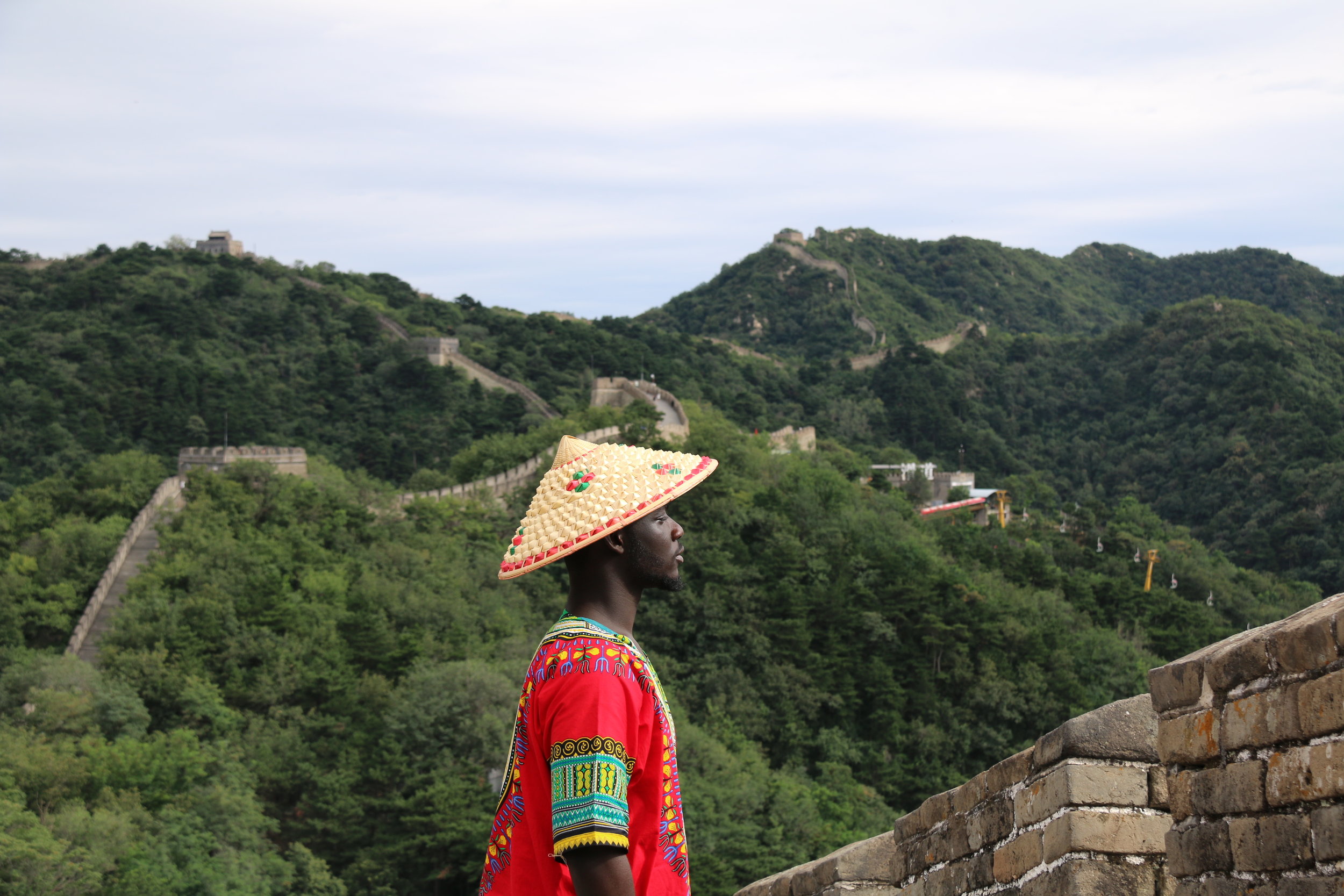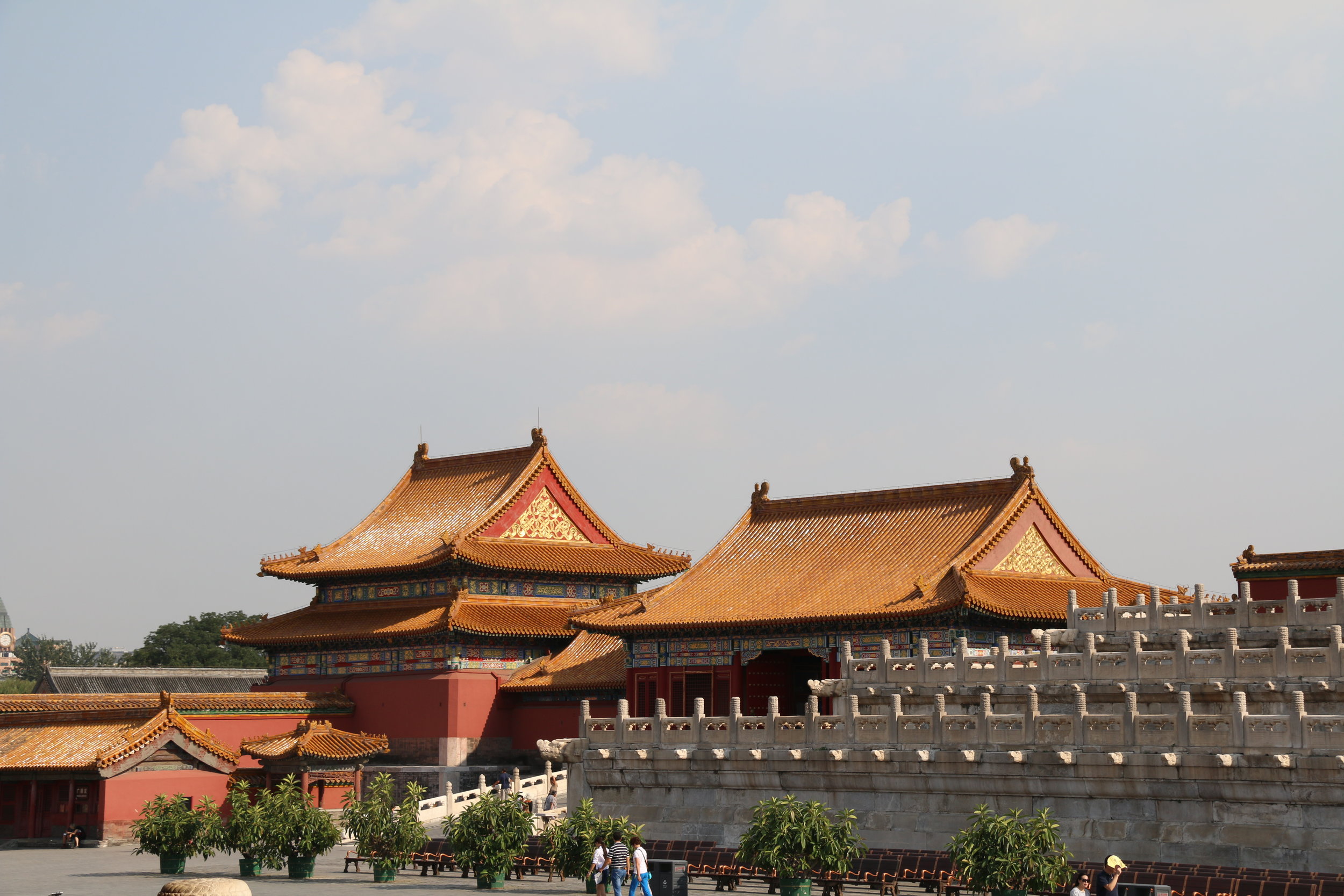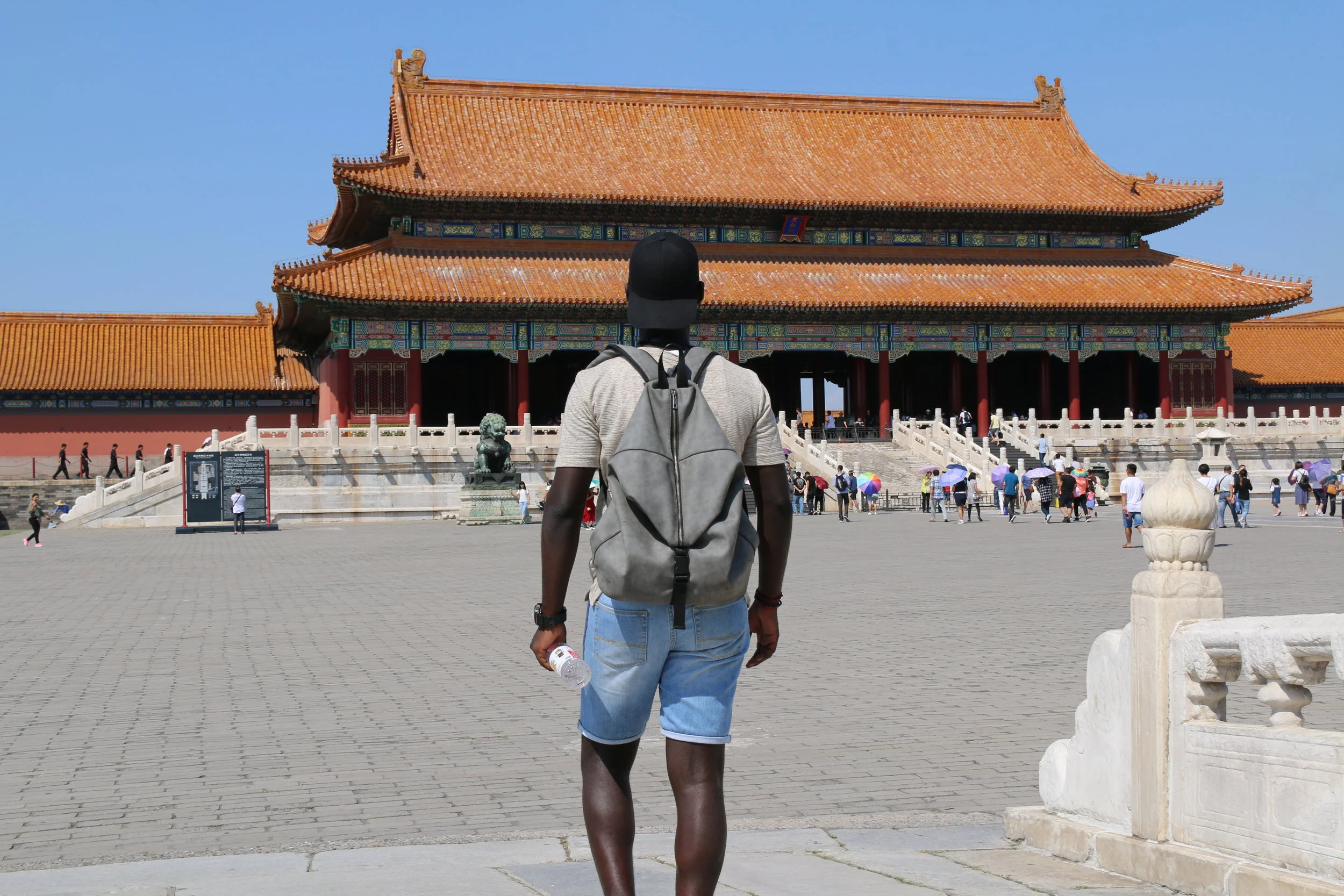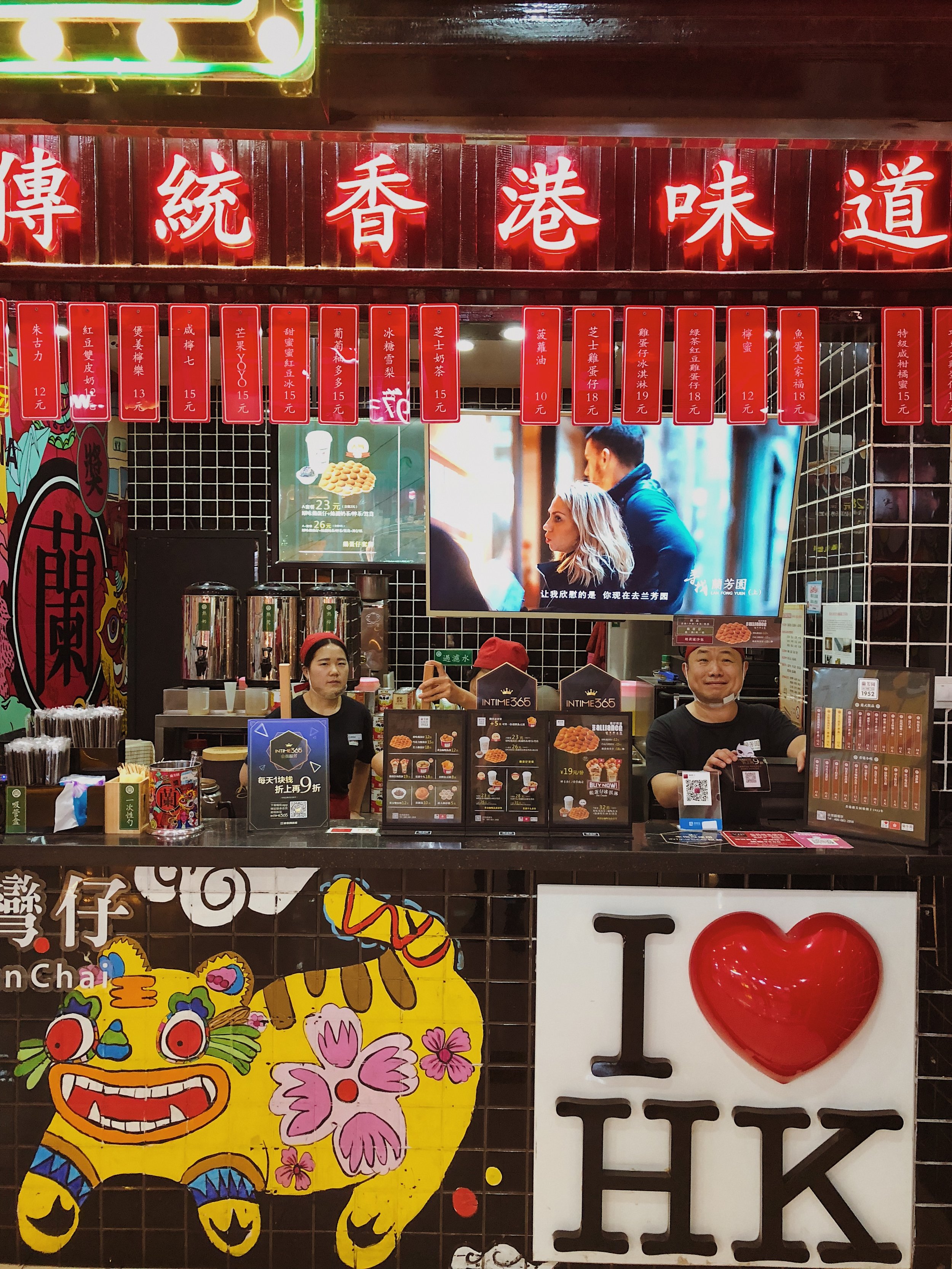Originally from Ghana, Nana's studies brought him to China where he has lived for a number of years. Here he shares with us his recommendations from a local's perspective. If you are considering travel to the country, this is a must read...
Introduce yourself!
My name is Nana Wallace. I’m from Ghana where I lived the first 15 years of my life, before boarding a plane for the first time to Qatar where I lived for 4 years and eventually moved to China in 2014.
What brought you to China? Which cities/ regions have you visited?
I moved to Wuhan, China to pursue my Bachelor’s degree in Software Engineering which I’ll be completing this summer. Out of the 22 provinces in China, I’ve visited 6; Hubei, Guangzhou, Shanghai, Beijing, Guangxi, Jiangsu and Macau (Special Administrative Region of the People's Republic of China).
What sparked your interest in photography and how does it influence the way you travel and see the world around you?
I remember as a kid I’d take my dad’s camera, the ones with film and just take pictures of random things like ceilings, floors and doors, which are now a thing on Instagram. I stopped that because my dad wasn’t happy about it as it cost to print those pictures out.
I think I started taking photography more seriously when I moved abroad. I take photos as a return ticket to a moment otherwise gone.
What is it like being an expat in China? Do you often meet other international travelers there?
I always say I met the world in China. You will meet people from all over the globe. I met more people from different African countries in China than I ever did living in Ghana or Qatar. With that said, it doesn’t feel like you’re in it alone— you can have a strong support system.
What is life like in China? What might surprise people about the region?
Life in China is pretty interesting. It took me some time to get used to the food, learn the language (still learning), and to navigate the culture and how locals go about things.
So just like many cultures, China has lucky and unlucky numbers too. For example, the number 4 (“sì”) is an unlucky Chinese number 4 because when pronounced it sounds very similar to the word for death. It is therefore common for many buildings in China to not have a 4th floor, with some buildings even going to the extent of skipping any floor with the number 4 in it such as 14, 24, 34 and all 40-49 floors.
On the other hand, the number 8 (“bā”) is considered the luckiest Chinese number because it sounds like the word for wealth. 88 is thus considered particularly lucky as it symbolizes the “double happiness” characters. This belief Chinese have in the number 8 being the luckiest number is so strong that the Beijing Olympic opening ceremony started exactly at 8 seconds and 8 minutes past 8pm on August 8, 2008.
What are some recommendations you have for future travelers to China (Places to go, things to see, cultural experiences)?
China is full of history and beautiful landscapes. Although Beijing and Shanghai have a lot to offer, some of the most amazing experiences will not come in these cities. Harbin is home to the largest ice and snow festival in the world and is held every year in January. Hangzhou and Suzhou are known as heaven on Earth in the famous Chinese phrase “Heaven above, Suzhou and Hangzhou below”. Bordering Tibet, Yunnan province is home to 53 of China’s 56 minority cultures and will make you forget China’s megacities completely with its vibrant clothing and beautiful natural landscapes.
What is the best way for a long-term traveler to China to feel included in the local culture?
One of the best ways is eating local. I believe what people eat explains a great deal about a society, the landscape, the environment of a country, the aesthetics, the rituals, as well as the general outlook on life. People are telling you a story when they give you food and if you don’t accept the food, you’re rejecting the people. I think making local friends is a good way to start.
If you follow me on IG, then you know I’m always posting food on my stories. I can go on and on about food. Every province has their specialty, so when you visit make an effort to try the province’s most popular foods:
I recommend Sweet & Sour Pork (Tang Cu Li Ji – 糖醋里脊) It was my first favorite dish in China and still is one of my favorites. The title says it all. It’s both sweet and sour.
Hot Pot (huǒ guō – 火鍋), is a specialty in Chengdu, Sichuan—but you don’t need to be in Chengdu to have a great hot pot. There are so many foods you could put into the hot-pot that it would take a whole separate article to recommend what to put inside. The good thing about this meal is you can ask for a split pot of spicy and non-spicy if some members of the group are not into spiciness but the rest are. Load up on vegetables, breads and meats. It’s a group activity and fun to eat. It can get a little messy on the table though, which is the only part I don’t like.
Tomato & Eggs (Fānqié jīdàn – 番茄鸡蛋),it’s a very simple, popular and delicious dish. One of my favourites just because it’s not too foreign.
Finally, definitely try Chinese Barbecue (Shaokao - 烧烤), heavily spiced barbecue foods on skewers.
What are some struggles you have encountered during your time in China? How do you overcome them?
Language barrier is definitely one of them but I’m still learning the language so hopefully I’ll overcome that one day.
Also, Mei banfa is a common expression that reflects the Chinese mentality of accepting hardship as their lot in life. They say it about themselves and can say it about you too. Sometimes this acceptance of one’s fate can come across as a relaxed mood, but usually it is more about burying their head in the sand. It’s always hard to hear it when you really need something done. But I’m slowly learning that sometimes that just means try asking someone else and they’ll come up with some solutions.
Are there any misconceptions about China that you’d like to address?
Mainland China is generally understood to be populated by a majority of ethnic Han Chinese people and 56 different ethnic minorities. So when people think of the Chinese, they are probably referring to the Han majority without even knowing it. The 56 official ethnic minority peoples are scattered throughout China, but different groups are the majority in different places. For example, Tibet is home to Tibetan people, Yunnan Province is home to many Bai and Hui people, and Xinjiang Province is home to the Uigher people.
Each minority group has its own traditions and way of dressing. Visiting the areas where these people live will give you different perspectives when you travel in China.
Mandarin is the language most people think of when it comes to what is generally spoken in mainland China. Putonghua, (Mandarin Chinese) is the language taught in schools and used on television. However, thousands of dialects exist in China. On my first trip to Shanghai, I remember asking this mature woman for directions and she couldn’t understand what I was saying, and I couldn’t understand the “Chinese” she was speaking too because it was more of Shanghai dialect.
What’s next for you?
I graduated this summer and planning to stay in China for a year or two more; working, studying, exploring and taking more photos.
For more of Nana’s travels, follow him on Instagram @_nana.kweku_
Images courtesy of Nana Wallace
DID THIS STORY INSPIRE YOU?
If you enjoyed this piece and would like more content like this, please consider a donation to Spirited Pursuit.
YOU MAY ALSO LIKE




























